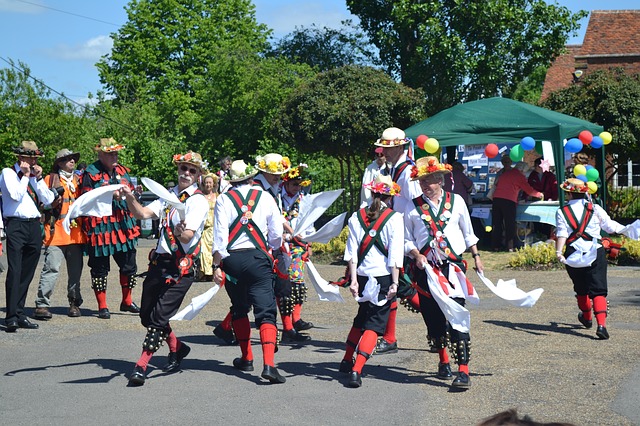- May 3, 2017
- Posted by: Stephen Burt
- Category: Real World Learning

I was at the Blackheath Halls on Saturday night to see The Demon Barbers. The DBs are electric folk with an appetite for pushing the limits of the genre.
So I was not too surprised to bump into traditional Morris Dancers as we went into the hall: all red tunics, bells and a hey-nonny-no. But cheek-by-jowl with them were the punk Morris – all black rags and shades – sort of Rocky Horror Country Show.
And the Barbers themselves were not afraid of a bit of hybridisation: clog dancers and breakdancers, serious percussion and the melodeon player had a wah-wah peddle that would not have embarrassed Jimmy Hendrix.
This unapologetic borrowing from other genres is the source of much innovation in music. But not only there – Picasso said that “good artists borrow, great artists steal”. And this is not limited to the right brain: “All decisive events in the history of scientific thought can be described in terms of the mental cross-fertilisation between different disciplines”, Arthur Koestler.
In business too, staying ahead of the curve, finding the innovation that enables a leader to steal a march on the competition requires them to find ideas and inspiration where no-one else is looking. But the sheer complexity of staying in touch with their own organisation, let alone keeping tabs on what the competition is doing, means that few leaders do the wide scanning they need to.
But engaging with parallel worlds, with other disciplines, genres or industries is not only about finding new ideas. Each new thing you do, you find a new part of yourself. And, if you do this with colleagues, you show them a side that they might not know.
I did a workshop at the EMCC conference in Edinburgh earlier this month. What was one of the greatest sources of insight? Seeing my coaching colleagues – luminaries and gurus – throwing some shapes on the dance floor. Hidden talents indeed!
And I mined a number of parallel worlds for my conference workshop on coaching mastery. I don’t believe we can capture the magic, or resolve the mystery of coaching mastery, by looking inwards: it’s in parallel worlds like art and music which, like coaching, involve technical excellence, self-mastery and self-expression that we will learn what it means to be a master coach.
So for innovation, for self-discovery, self-disclosure and to get a handle on excellence, looking outside our individual bubbles is essential. If something interests you, try it – who knows what you’ll find there. I have long held true to the composer, Sir Thomas Beecham’s adage to “try everything in life, except incest and Morris Dancing” and I might just change my mind about Morris Dancing.

